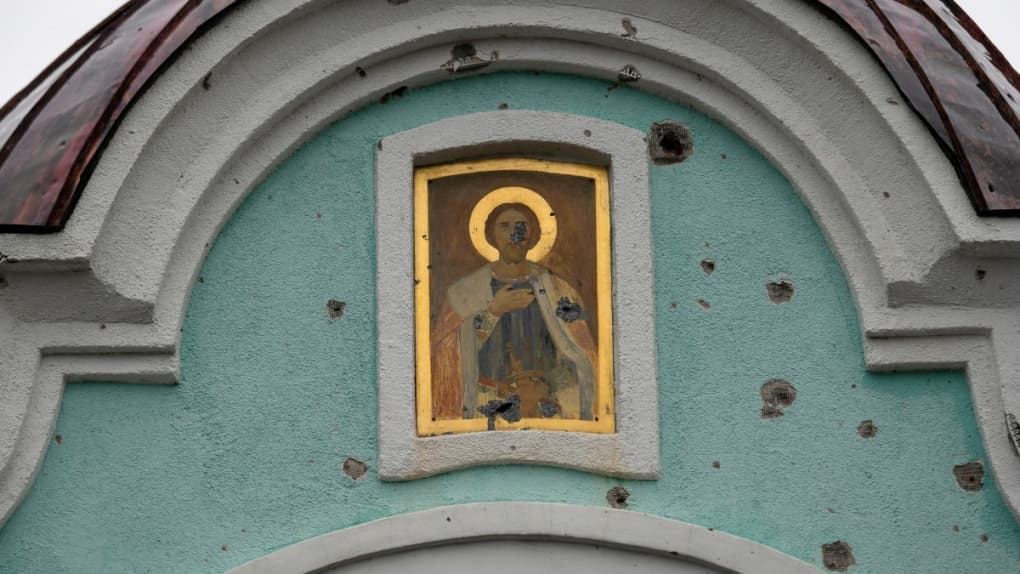ROME – Ukrainian authorities, after conducting raids on several parishes, announced Friday a ban on religious organizations “affiliated with centers of influence” in Russia, and said an examination would be made of potential ties between Ukrainian and Russian Orthodox churches.
This decision was described by Ukrainian President Volodymyr Zelenskyy as necessary in order to prevent Moscow from being able to “weaken Ukraine from within.”
Orthodox Christians make up the bulk of Ukraine’s population of 43 million, and for years were subject to the authority of the Russian Orthodox Patriarchate.
However, in 2019 the spiritual leader of Orthodox Christians worldwide, Patriarch Bartholomew of Constantinople, gave permission to Ukraine to form a church independent of Moscow, leading to a split in Ukraine’s Orthodox community between those still loyal to Moscow and those who joined the newly independent Ukrainian Orthodox Church.
Many parishes and priests, mostly in eastern Ukraine, remained under the umbrella of the Ukrainian Orthodox Church of the Moscow Patriarchate, but in May the Moscow-subordinate branch of Orthodoxy formally broke ties with the Russian Orthodox Church over the invasion of Ukraine.
In a statement at the time, the church’s leadership condemned Russia’s Feb. 24 invasion of Ukraine and said it would declare “full independence” from Russia, and that its council had “approved the corresponding additions and changes to the Statute on the Management of the Ukrainian Orthodox Church, indicating the full autonomy and independence of the Ukrainian Orthodox Church.”
As part of the crackdown on Moscow-affiliated churches, Ukraine’s National Security and Defense Council urged the country’s government to draft the law after conducting a series of raids on parishes that are believed to be taking orders from Moscow amid the Russia-Ukraine war.
The security council, composed of top security, military, and political officials, also ordered investigations be conducted into suspected “subversive activities of Russian special services in the religious environment of Ukraine,” and called for sanctions against unspecified individuals, who are believed to include senior Russian clerics.
According to Reuters, raids conducted by the Security Service of Ukraine (SBU) continued Friday, with officials declaring that they had searched at least five parishes belonging to the branch of Ukrainian Orthodoxy which until May was loyal to Moscow, and served a notice to the former leader of one of previously Moscow-affiliated dioceses for allegedly orchestrating a pro-Russia campaign together with senior Russian Orthodox Officials.
In his nightly televised address to the nation, Zelenskyy told citizens, “We have to create conditions where no actors dependent on the aggressor state (Russia) will have an opportunity to manipulate Ukrainians and weaken Ukraine from within.”
“We will never allow anyone to build an empire inside the Ukrainian soul,” he said.
Zelenskyy’s announcement was met with fierce criticism from the Russian officials, with former Russian President Dmitry Medvedev describing authorities in Kyiv as “satanists” and calling them “enemies of Christ and the Orthodox faith.”
This decision also comes as news is circulating about the detainment and possible torture of two Greek Catholic priests from the city of Berdyansk, in Ukraine’s Zaporizhzhia region, which falls within the Ukrainian Greek Catholic Exarchate of Donetsk.
RELATED: Ukraine Catholics warn that priests arrested by Russia could be tortured
They were among the few who remained in the area to minister to faithful amid Russia’s military offensive in Ukraine, which is largely concentrated in the country’s eastern regions.
According to the Exarchate of Donetsk, the clerics were detained by Russian troops for allegedly housing explosives in their parish and parish house with the intention to commit “guerilla” activities against the Russian army.
The exarchate has condemned the allegations as both false and “slanderous,” saying the charges were fabricated in order to put pressure on the clergy and the local church.
The exarchate called for the immediate release of the priests, who they said were likely victims of torture to extract a coerced confession, and warned that prolonged detention and physical distress could prove fatal for one of the priests, who suffers from a medical condition putting him at heightened risk.
Follow Elise Ann Allen on Twitter: @eliseannallen












